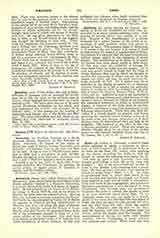

Ambition, the undue craving for honor. Anciently in Rome the candidates for office were accustomed to go about (ambire) soliciting votes. This striving for popular favor was spoken of as ambitio. Honor is the manifestation of a certain reverence for a person because of the worth or assemblage of good qualities which that person is deemed to have. The excessive desire of distinction is of course a sin, not because it is wrong in itself to wish to have the respect or consideration of others, but because it is assumed that this quest is conducted without proper regard to the mandates of sound reason. This deordination in the desire of, or search for, honor may come about chiefly in three ways. (I) One may want this exhibition of homage for some merit which he really does not possess. (2) A man may permit himself to forget that the thing or things, whatever they may be, which are thought to deserve the testimony of others, are not his in fee simple, but God‘s, and that the credit therefore belongs primarily to God. (3) A person may be so absorbed in the display of esteem for, or deference towards, himself as to fail to employ the particular degree of excellence which has evoked it for the welfare of others (St. Thomas, Summa Theol., II-II, Q. cxxxi, Art. 1). Ambition as such is not accounted a mortal sin; it may become such either because of the means it uses to compass its object, as for instance, the simoniacal endeavor to obtain an ecclesiastical dignity, or because of the harm done to another. Ambition operates as a canonical impediment in the following circumstances. Those who take their elevation to a church dignity for granted, and, before receiving the requisite formal enabling notice of it, by some overt act demean themselves as if their election were an accomplished fact, are held to be ineligible. The bestowal of the office in this case is likewise considered invalid. Those who accept an election brought about by an abuse of the secular power are also declared ineligible (Corp. Jur. Can, in VI Decret., Bk. I, tit. vi, ch. v).
JOSEPH F. DELANY

